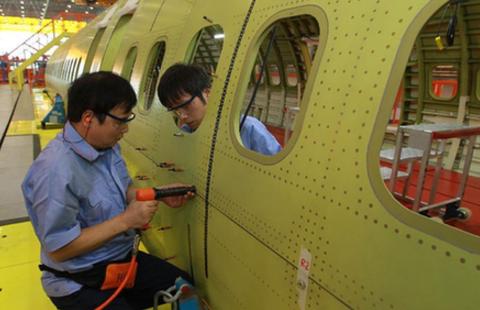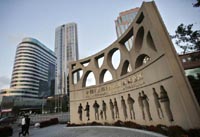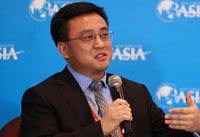Big picture of a big nation takes shape
(China Daily) Updated: 2014-09-22 07:18Kirby, who until last year was director of the Fairbank Center at Harvard, one of the US' leading China centers, which was founded in 1955, says such centers play an important role in delivering people with the expertise to deal with a world in which China is a rising power.
|
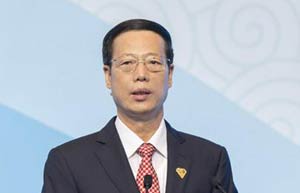 |
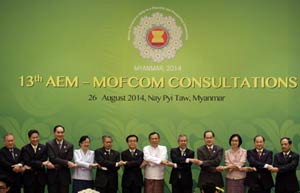 |
Clayton Dube, executive director of the US-China Institute at the University of Southern California, another leading China center in the US, speaking from Los Angeles, says Oxford's new center is a reflection of the new multidisciplinary approach required to China.
"What China's economic rise has meant is that interest has widened beyond China-centered political scientists, sociologists, historians and others. It has brought in folks that wouldn't have previously thought about China in regards to, say, architecture, urban planning, law and even anti-smoking campaigns and myriad other things," he says.
"They wouldn't have thought about China in regard to these things. Now it is impossible to imagine not thinking about China in relation to almost any issue."
David Shambaugh, professor of political science and international affairs at George Washington University in Washington, DC, who was in Beijing, says, however, he does not believe there is anything radically new about the launch of the Oxford China center.
"In my recollection it is the third time they (Oxford) have opened a China center in the past 20 years," he says.
Shambaugh, also author of China Goes Global: The Partial Power, which highlighted the limits of China's influence and which has just been published in paperback, also thinks there is nothing new in the multi-disciplinary approach of studying China since it has a long tradition in the US and the UK, although not in continental Europe.
"This interdisciplinary approach dates back to the 1960s and 1970s, and it is an Anglo-American tradition whereas the Franco-German and Scandinavian approach is more Sinologically-based," he says.
Hinrich Voss, deputy director of the Business Confucius Institute at Leeds University, disputes Shambaugh's assertion and says there is now very much a convergence in the concept of what a China center is in both Europe and the US.
"When I studied at Duisburg University (in Germany), there were many colleagues focusing on different Asian countries and from different political science backgrounds, which created quite a cross-fertilization of ideas," he says.
Voss, who is also a researcher in Chinese economy and management at another China-focused center, the White Rose East Asia Centre, a joint venture between Leeds and Sheffield universities, says there are risks, particularly now that China is a major economic power, of taking such a narrow approach.
"If you are just dealing with the specifics of China, you may not see the bigger picture. You may think something is unique to China whereas it may have been experienced by many other countries," he says.
Kerry Brown, who is head of what is rapidly emerging as one of world's leading such centers, the China Studies Centre at the University of Sydney, says that being an effective China center means more than putting a brass plate on the door.
"In the past you would have a China center in name but they didn't have any major role at the university. They were usually sleepy little backwaters," he says.
Brown, former head of the Asia program at London-based foreign policy think tank Chatham House and who became executive director in 2012 of the Sydney center, which now has 140 academic members, says the top China centers have to hold major events, have established relations with Chinese policymakers and also reach out to business leaders and other key figures in the community.
"We do big annual events in business, do a lot of work with policymakers in the Chinese government and work with a number of partners in China. We also do a lot of media work. You now need to do major outreach to be an effective China center," he says.
- Entrepreneur problems and solutions in macro-economy and business operations
- Chinese premier stresses role of urbanization in economy
- Turning conventional wisdom on Chinese economy inside out
- Marriott International pledges support for China's evolving knowledge-based economy
- Private business drives most of city's economy
- China focuses on comprehensive growth target: finance minister
- Luxury brand looks to electrify racing
- 30 years on, China to re-evaluate development zones
- China's ABC lists one billion RMB bond at NASDAQ Dubai
- Wheels in motion
- China supports FSB in reducing financial risks
- China finishes property registration consultation
- Business innovation also key to e-car development


